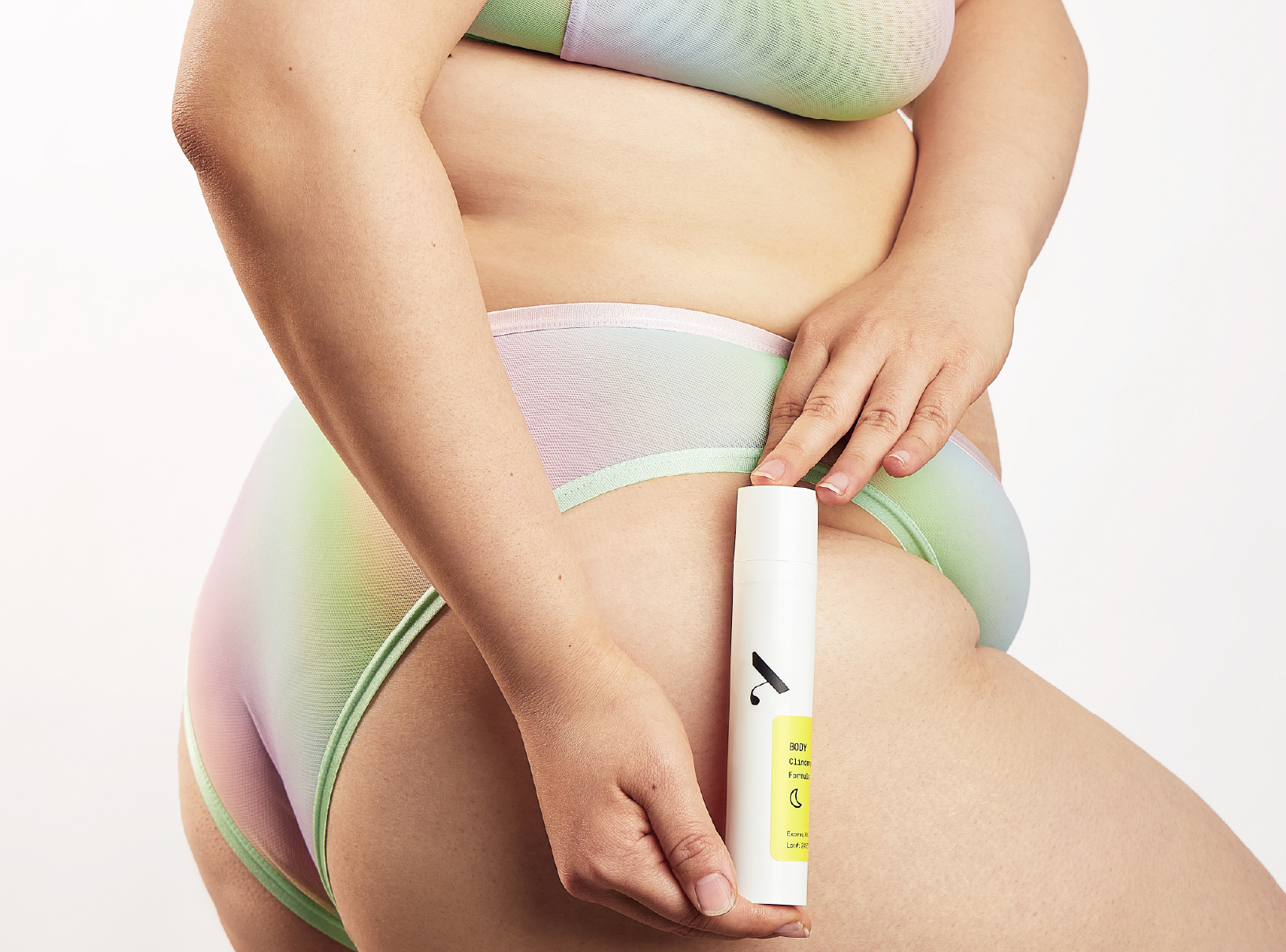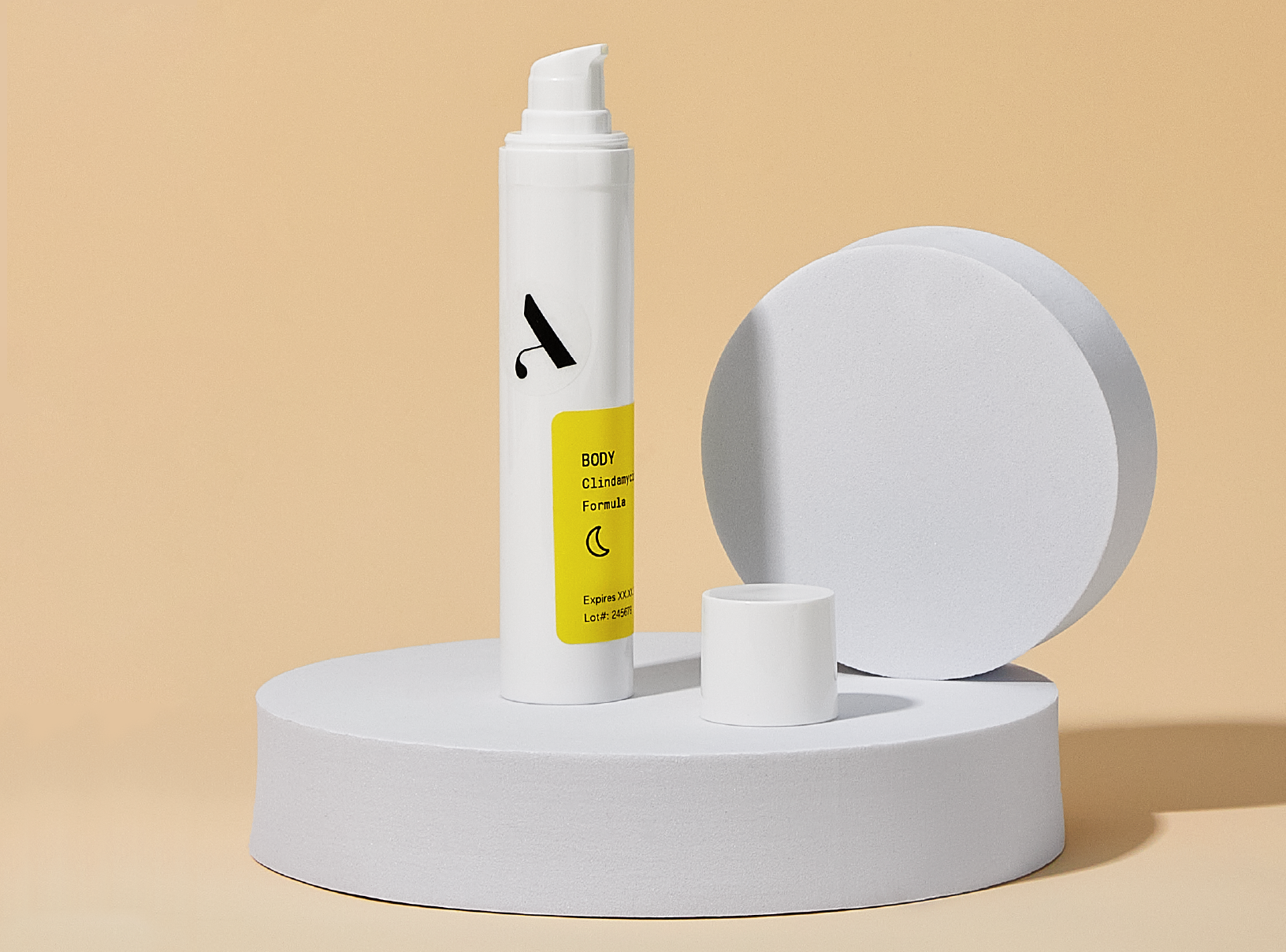Education
Body Acne Causes & Treatments
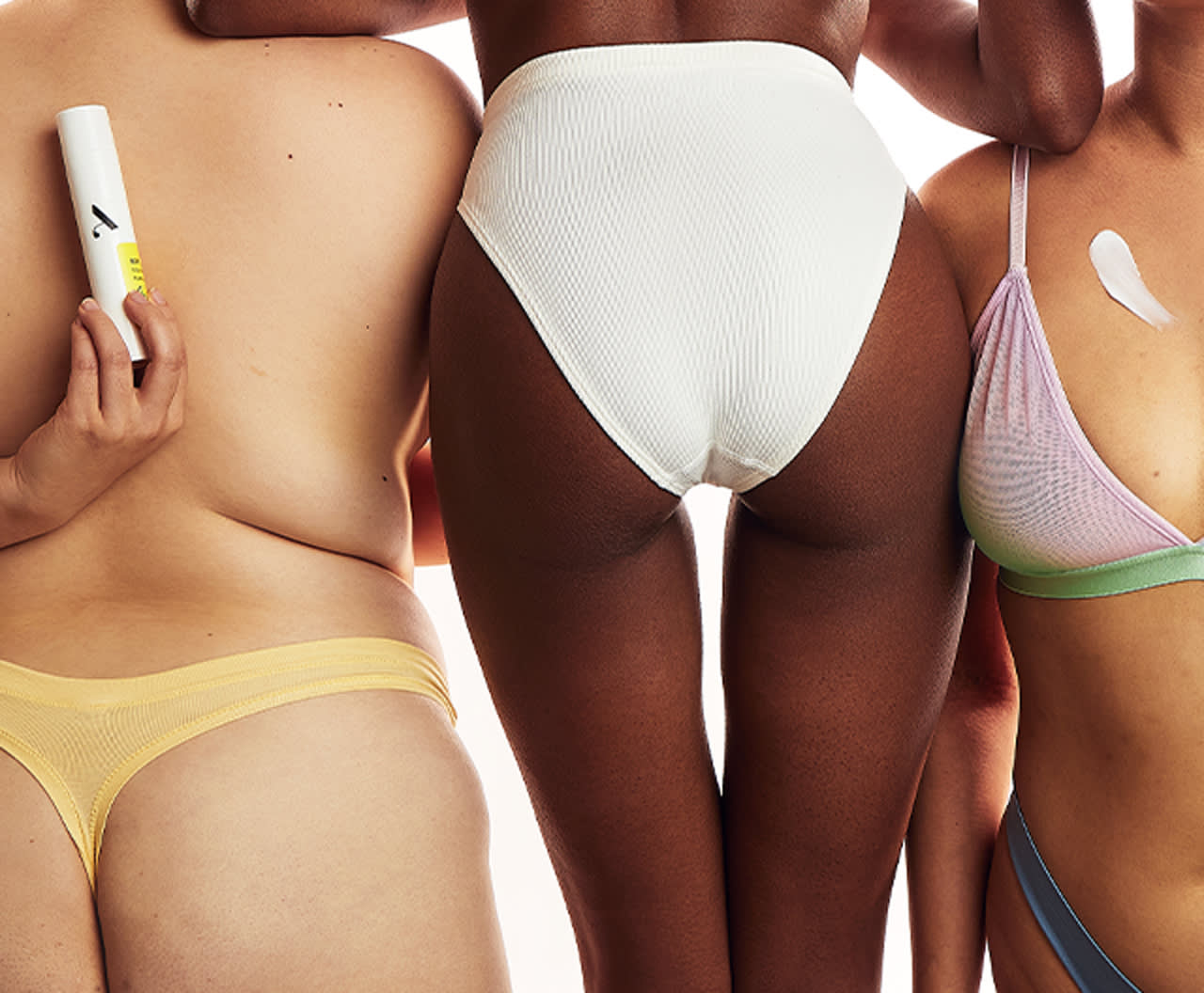
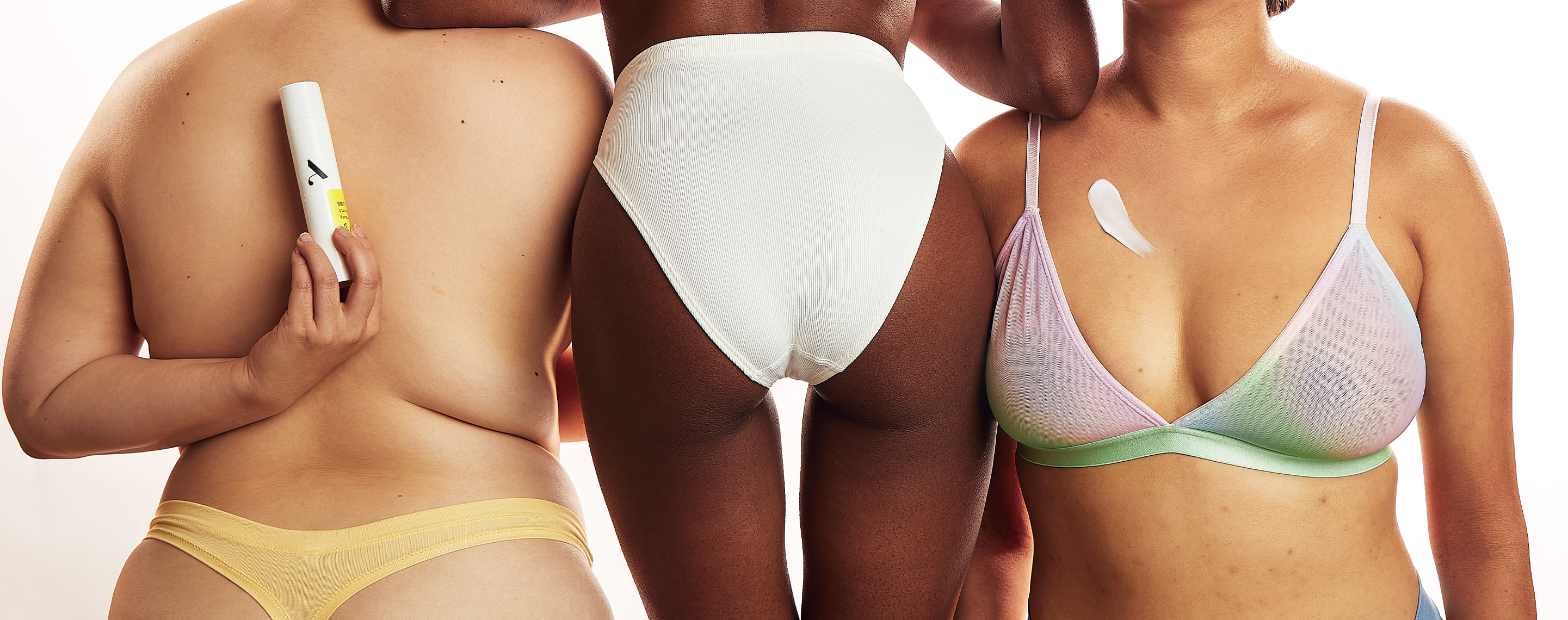
SHARE
Education
Body Acne Causes & Treatments
Medically reviewed by Aimee Paik, MD
Written by Annie Lam
Last updated 1/2/2023
There are thousands of facial acne treatments out there on the market - but body breakouts tend to be put on the back burner. Body acne is actually very common, so today we're going to break down why you get body acne and the best treatments for them.
What causes body acne and where can you get it?
An acne breakout can happen anywhere on the body that has a hair follicle, from your face to your back. However, there are certain areas of the body that are more prone to breakouts, specifically your back, chest, and butt.
In order to understand the causes of these breakouts, we need to talk about the difference between chest, back, and butt acne.
Breakouts found on the chest and back are considered acne (initially formed by a plugged follicle or clogged pore). However, butt acne is caused by irritation of the hair follicle, so it’s actually folliculitis, not acne.
Back acne
Back acne and shoulder acne is actually quite common. Acne mechanica is commonly found on the body (especially the back). It's a type of acne vulgaris that is caused by rubbing or pressure combined with heat or sweat.
This commonly happens when working out in tight clothing or walking around with a heavy backpack. Back acne can also be caused by a genetic predisposition.
Chest acne
The chest is another area on the body that can have inflammatory acne. The center of the chest can have large sebaceous glands, making it a common area for chest breakouts. Like back acne, chestne can be caused by excess oil/sebum and sweat along with tight clothing.
Butt acne
As mentioned earlier, butt acne is actually considered folliculitis. If you spend a lot of time sitting, this can contribute to butt acne due to the potential rubbing and irritation. Excess sweating and wearing tight-fitting clothes can also worsen a stubborn butt pimple.
So we now know what causes your body breakouts - but what’s the difference between body acne and facial acne?
How does body acne differ from facial acne?
As mentioned earlier, all acne centers around hair follicles. Body and face acne actually aren't that different - they are both caused by clogged pores. In fact, the upper half of your body has lots of sebaceous glands, just like the face.
If you have acne prone skin and break out on your face, there is no guarantee that you'll also experience acne on your body. Conversely, even if you have clear skin on your face, you may still deal with breakouts on your body. Remember that acne is complex and can be caused by a variety of different factors, including genetics, stress, environmental factors, and more.
Now let’s talk about how to get rid of butt acne and how to prevent breakouts on your body.
Tips to prevent body acne
Here are some of our top tips for preventing these stubborn breakouts:
🚿 Wash your body right after working out to prevent sweat and oil from building up and exacerbating breakouts
👚 Opt for loose-fighting clothing to minimize friction and irritation on the body
💦 Keep your sheets, pillowcases, and clothes clean by washing them often with fragrance-free detergent
These tips will help minimize breakouts, but having a solid body care routine will help keep body acne at bay. Now let’s talk about how to get rid of body acne.
Body acne treatment
The skin on your body is more resilient than facial skin, so it tends to be more tolerant of stronger treatments. Whether you have oily skin or dry skin, it's important to keep up with a simple body care routine.
When it comes to treating breakouts, there are some solid over-the-counter skin care products, but for more severe acne, prescription-strength treatments may be the way to go. If you've wondered how to get rid of back acne, chest acne, or butt acne, here are some of the best ingredients to look for in a body acne treatment:
Mild body acne
For very mild breakouts, there are some great over-the-counter treatments like acne body wash, lotions, and even acne body sprays! Most body acne treatments should only be applied to affected areas.
Exfoliating acids: A body wash for body acne or treatment with exfoliating acids can help improve skin cell turnover, remove dead skin cells, and unclog pores. Look for ingredients like salicylic acid, lactic acid, or glycolic acid.
Benzoyl peroxide: Look for products with BPO to help reduce acne causing bacteria, remove dead skin cells, and treat inflammatory acne. Many body washes and cleansers have this acne fighting ingredient!
Moderate to severe body acne
For more moderate to severe breakouts, we'd recommend checking in with a dermatologist for prescription-strength treatment for your body acne.
Clindamycin: This topical antibiotic helps to calm redness and inflammation while reducing acne causing bacteria. Typically used alongside benzoyl peroxide for best results and to prevent antibiotic resistance.
Retinoids: For more moderate to severe breakouts, a topical retinoid could be a great option. These help to remove dead skin cells, increase cell turnover, and can help keep acne under control long term.
Oral antibiotics: For severe acne on the body, an oral antibiotic like doxycycline may be prescribed as a short-term treatment. It helps to quickly calm down inflammation and kickstart treatment.
Oral spironolactone: An oral medication that is commonly used to treat hormonal breakouts in women. Spironolactone is an antiandrogen that can help control body acne in women by treating the hormonal causes of acne.
Meet Body by Apostrophe
If you've tried Apostrophe before, you'll know that we prescribe facial treatments for a variety of skin concerns. We treat hormonal acne, rosacea, adult acne, cystic acne, and more. But we've recently expanded our products to include face and body!
Our body acne treatment combines clindamycin and niacinamide to target inflamed breakouts and reduce dark spots left behind. Whether you're looking for a back acne treatment, butt acne treatment, or chest acne treatment, we've got you covered. If you've been dealing with stubborn breakouts on your body, it's time to get treatment from the experts. If appropriate, our expert medical providers may prescribe oral medications alongside a topical treatment to effectively treat your body acne.
Here at Apostrophe, all you have to do is submit an online consultation with information on your skin condition, medical history, and photos of your skin. From there, you'll receive a customized treatment plan crafted by a board-certified dermatologist. Get started on your journey to clearer skin today!
Sources:
https://www.verywellhealth.com/back-acne-and-body-acne-15483
https://coveteur.com/2020/04/24/body-acne-causes-treatments/
Shop this post

Clindamycin Body Formula
Like what you just read? Sign up for our email list to get the scoop on skincare science delivered straight to your inbox.

Education
What is milia?
What is milia? Today, we’re jumping into one type of bump that you may have heard about most commonly in infants — milia.
Read More
Education
Best moisturizer for acne-prone skin
If you have combination acne-prone skin, figuring out which moisturizer is best for your skin might be tough. In this guide, we break down the best moisturizer for combination, acne-prone skin.
Read More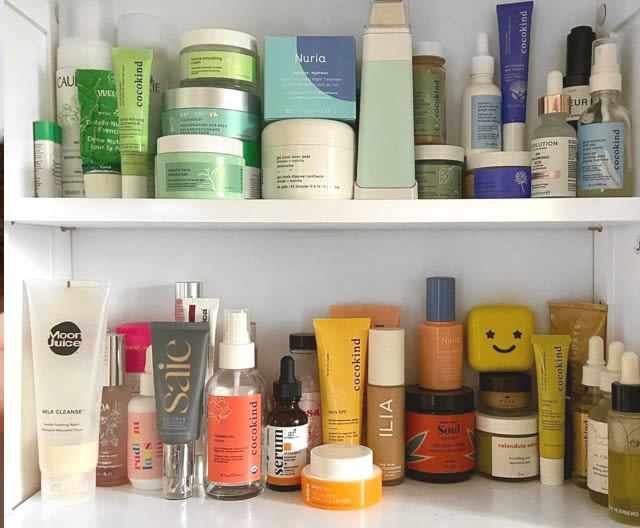
Education
How to build a face care routine
As you get into skincare, it might seem overwhelming, especially trying to figure out the order you're supposed to apply products in. Below, we detail how to build a face care routine for your skin!
Read More